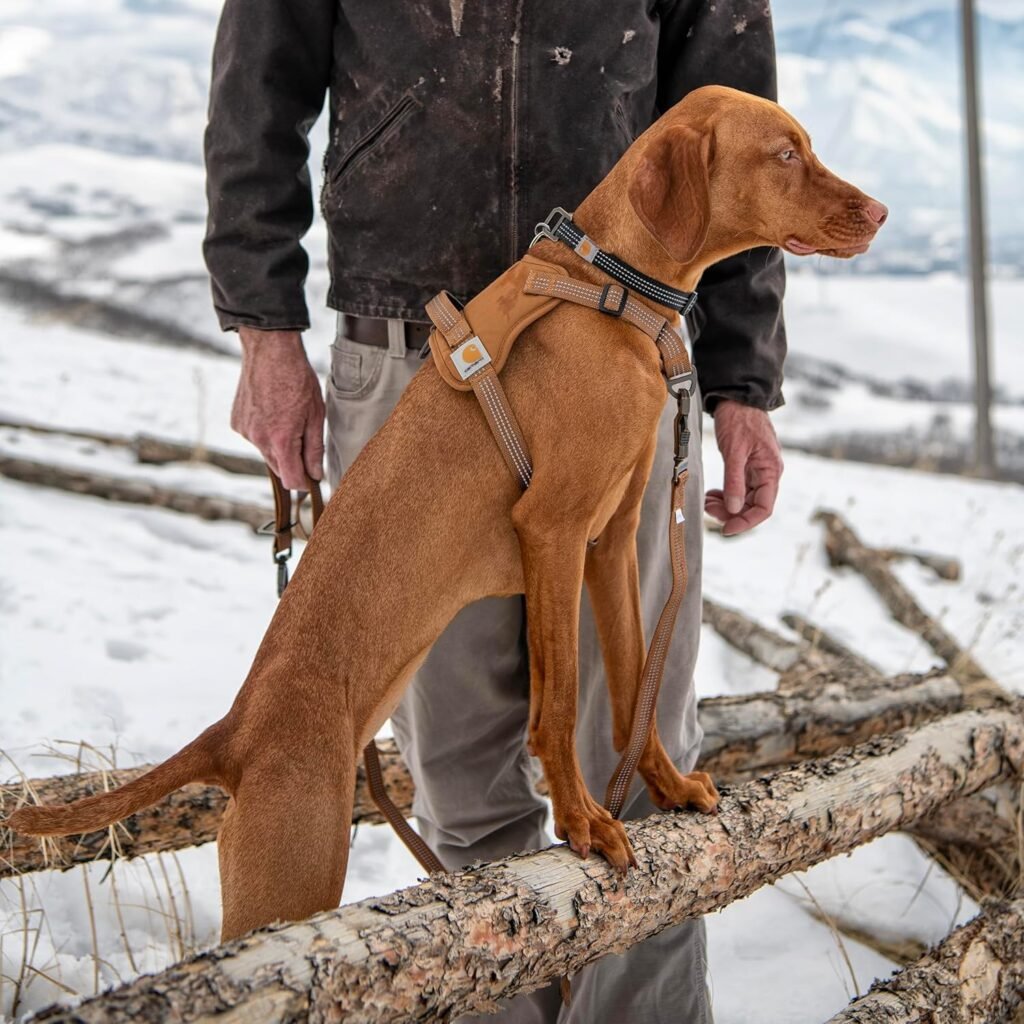
Got a Poodle? They’re smart, super expressive, and sometimes a bit quirky. Understanding what makes them tick can really help in dealing with any odd behaviors. Poodles are known for their intelligence and emotional expressiveness, so they might show a mix of behaviors like jumping, growling, or even begging. These can be a bit challenging if you’re not prepared. But don’t worry! With some patience and consistent training, you can work through these. Poodles love being around people and playing, so keeping them mentally stimulated is key. It’s also important to address any behavior issues as they grow. By getting to know your Poodle’s behavior and training them well, you’ll build a great bond and have a happy pup.
Key Takeaways
- Poodles are super smart and expressive, so they need mental stimulation.
- They might show behaviors like jumping or growling, which need patience and training.
- Consistency in training is crucial due to their independent nature.
- Social interaction and play are vital for their happiness.
- Address behavior issues early to build a strong bond with your Poodle.
Understanding Poodle Behavior: Key Traits and Quirks

Emotional Expressiveness in Poodles
Poodles are known for their emotional expressiveness, which can be both charming and challenging. These dogs wear their hearts on their sleeves, often using a mix of vocalizations and body language to convey their feelings. Whether it’s a joyful bark when you arrive home or a soft whine when they’re feeling lonely, poodles make sure you know what’s on their mind. Their expressive faces, complete with those soulful eyes, can often tell you more than words ever could.
Common Behavioral Challenges
Like any breed, poodles come with their own set of behavioral challenges. Separation anxiety is a big one, as these dogs can become very attached to their owners. This can lead to destructive behaviors if not properly managed. Poodles are also known for their intelligence, which means they can get bored easily. Without enough mental stimulation, they might resort to unwanted behaviors like chewing or excessive barking. Regular exercise and interactive play can help manage these issues.
Unique Communication Methods
Poodles have a unique way of communicating that goes beyond barking and whining. They often use their entire bodies to express themselves, from a playful bow to a curious head tilt. Some poodles even “talk” by making a range of sounds that can resemble human speech. Understanding these communication methods can help you better connect with your poodle and respond to their needs effectively.
Spending time observing your poodle’s behavior can open up a world of understanding and appreciation for their unique quirks. Their expressiveness and intelligence make them fascinating companions, always ready to engage with you in their own special way.
Training Your Poodle: Setting the Foundation for Good Behavior
Positive Reinforcement Techniques
Training a poodle isn’t just about commands; it’s about building a relationship. Positive reinforcement is your best friend here. Forget about harsh words or punishments. Instead, reward good behavior with treats, praise, or a fun game. It’s like telling your poodle, “Hey, you did great!” and they love it. You can use meal times as training opportunities. Break their meal into portions and use it to reinforce good behavior throughout the day. Short, ten-minute sessions are effective and keep your poodle engaged.
Consistency in Training
Consistency is key when training your poodle. This means using the same words and gestures every time you give a command. If you say “sit” today and “down” tomorrow for the same action, your poodle will be confused. Stick to a routine, and make sure everyone in the family is on the same page. Consistent training helps your poodle understand what you expect from them. Remember, dogs thrive on routine, so keep the training schedule regular.

Addressing Training Challenges
Every poodle is unique, and sometimes you might face challenges. Maybe your poodle is stubborn or easily distracted. The trick is to stay patient. If your poodle isn’t responding, take a step back and assess the situation. Are they tired? Hungry? Sometimes, adjusting the training environment can make a big difference. If you’re struggling, consider enrolling in agility classes to channel their energy positively. Remember, persistence is key, and with time, your poodle will catch on.
Socialization and Interaction: Building a Confident Poodle
Importance of Early Socialization
Socializing your Poodle early is like giving them a head start in life. Starting between 3 and 12 weeks is often recommended. During this time, your Poodle is like a sponge, soaking up new experiences and learning how to interact with the world. Socializing Toy Poodles from a young age helps them become well-adjusted adults. Introduce them to different environments, people, and other animals to prevent fear and aggression later on.
Interactive Play and Mental Stimulation
Poodles are smart cookies, and they love a good challenge. Interactive play isn’t just fun; it’s crucial for their mental health. Think puzzle toys, hide and seek, or even agility courses. These activities not only keep them entertained but also help in channeling their energy positively. A bored Poodle can become a mischievous one, so keeping their mind busy is key.
Managing Social Anxiety
Sometimes, despite your best efforts, your Poodle might still feel anxious in social situations. It’s important to recognize the signs—like excessive panting or hiding. Gradual exposure to social settings can help, along with positive reinforcement when they handle a situation well. Remember, patience is your best friend here. If anxiety persists, consulting a professional can provide tailored strategies to help your Poodle feel more at ease.
Building a confident Poodle is about creating positive experiences and being patient. It’s a journey, but with the right approach, your Poodle can become a sociable and happy companion.
Decoding Poodle Vocalizations: What Your Dog is Telling You
Understanding Barking and Whining
Poodles are known for their vocal nature, and understanding their barks and whines can be key to a harmonious relationship. Barking can mean a lot of things: excitement, alertness, or even boredom. Pay attention to the pitch and pattern. High-pitched barks often signal playfulness or happiness. On the other hand, whining usually indicates a need for attention or discomfort. It’s your poodle’s way of saying, “Hey, I need something!” Consistent whining might suggest something is off, like anxiety or a need for companionship.
Interpreting Growls and Howls
Growling is often misunderstood. While it can be a sign of aggression or fear, it can also be a playful gesture during roughhousing. Context is everything. If your poodle growls while playing, it’s likely all in good fun. However, if it happens during feeding or when they’re guarding a toy, they might be feeling protective. Howling, on the other hand, is less frequent in poodles but can occur in response to certain sounds or when they feel lonely. It’s their way of reaching out and communicating with the world.
Responding to Vocal Cues
Responding to your poodle’s vocal cues can greatly enhance your bond. Here’s a simple guide:
- Acknowledge their barks: If they bark to alert you, check it out. Ignoring it might make them feel unheard.
- Comfort their whines: Offer a gentle pat or a soothing word if they’re whining. It reassures them that you’re there.
- Respect their growls: If a growl seems serious, give them space. For playful growls, engage in their game.
Understanding your poodle’s vocalizations is like learning a new language. It takes time, patience, and a lot of listening. But once you get the hang of it, you’ll find that your bond becomes much stronger.
By recognizing these vocal signals, you can better cater to your poodle’s needs and ensure a happy, communicative relationship.
Managing Poodle Energy Levels and Exercise Needs

Daily Exercise Routines
Poodles, whether they’re the Standard Poodles or the smaller Miniature ones, are energetic and need daily exercise to stay happy and healthy. Typically, adults require about an hour of physical activity each day. This can include walks, playtime, or even a fun game of fetch. Make sure to adapt the routine to your poodle’s size and age, as younger or smaller poodles might need less intense workouts. A well-fenced yard can be a great place for them to stretch their legs and burn off some steam.
Mental Stimulation Activities
Physical activity isn’t the only thing your poodle needs. Mental stimulation is key to keeping them content. Poodles are smart cookies, so they thrive on activities that engage their brains. Try incorporating puzzle toys, interactive games, or even some agility training into their routine. Not only will this keep them entertained, but it also helps prevent boredom-related behaviors like chewing or excessive barking.
Balancing Rest and Activity
While it’s important to keep your poodle active, don’t forget about downtime. Rest is crucial for their overall well-being. Make sure they have a cozy spot to relax after a day of activities. It’s all about balance—too much exercise can be just as bad as too little. Keep an eye on your poodle’s energy levels and adjust their routine as needed to ensure they’re getting the right mix of activity and rest.
Remember, a happy poodle is one that’s both mentally and physically engaged. By providing them with the right amount of exercise and mental challenges, you’ll not only keep them healthy but also strengthen the bond you share.
Addressing Common Behavioral Issues in Poodles
Handling Aggression and Fear
Aggression and fear are two sides of the same coin when it comes to Poodles. These smart dogs can sometimes react aggressively if they’re scared or anxious. Understanding your Poodle’s triggers is the first step in managing these behaviors. Observe when and where these reactions occur to identify patterns.
- Stay calm: Your Poodle will pick up on your emotions, so maintaining a calm demeanor can help diffuse tense situations.
- Use positive reinforcement: Reward calm behavior with treats or praise to encourage a more relaxed response.
- Seek professional help: If aggression or fear becomes unmanageable, consider consulting a professional trainer. For some poodles with severe fear or aggression, professional guidance is crucial.
Preventing Destructive Chewing
Poodles, like many dogs, may chew destructively if they’re bored or anxious. Chewing is a natural behavior but can be problematic when it targets your furniture or shoes.
- Provide chew toys: Ensure your Poodle has plenty of appropriate items to chew on.
- Exercise regularly: A tired Poodle is less likely to chew out of boredom.
- Redirect behavior: If you catch your Poodle chewing on something inappropriate, redirect them to a toy and praise them when they switch.
Remember, patience and consistency are key. Poodles need time to learn what is acceptable to chew.

Dealing with Separation Anxiety
Separation anxiety is common in Poodles, who thrive on companionship. They might bark, whine, or even become destructive when left alone.
- Create a safe space: Designate a comfortable area with toys and a cozy bed where your Poodle feels secure.
- Practice short departures: Start by leaving your Poodle alone for short periods, gradually increasing the duration.
- Stay low-key: Avoid making a big fuss when leaving or returning home to minimize anxiety.
Managing your Poodle’s behavioral issues takes time and effort, but with patience and the right strategies, you can foster a happy, well-adjusted pet.
Conclusion
So, there you have it! Getting to know your Poodle’s behavior is like unlocking a whole new world of wagging tails and playful barks. These dogs are not just about their fancy haircuts; they’re smart, full of energy, and love a good challenge. Remember, patience and consistency are your best friends when it comes to training. Whether it’s teaching them new tricks or just understanding their quirky ways, every moment spent is a step towards a stronger bond. So, keep the treats handy, stay positive, and enjoy the journey with your fluffy friend. After all, a happy Poodle makes for a happy home!
Frequently Asked Questions
Why does my Poodle bark so much?
Poodles are naturally alert and can bark to communicate excitement or warn of strangers. Training can help manage excessive barking.
How can I stop my Poodle from chewing everything?
Providing chew toys and consistent training can redirect your Poodle’s chewing to appropriate items.
What should I do if my Poodle shows aggression?
If your Poodle shows aggression, consult a professional trainer to address the behavior safely and effectively.
How do I deal with my Poodle’s separation anxiety?
Gradually increase the time you’re away and provide toys to keep your Poodle occupied. Training and patience are key.
Why does my Poodle whine so much?
Whining can indicate your Poodle needs attention, is anxious, or is uncomfortable. Observing the context can help address the cause.
How much exercise does my Poodle need?
Poodles are active dogs and need daily exercise like walks and playtime to stay healthy and happy.

